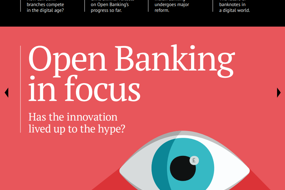Consumer Manifesto for Open Banking
Independent consumer finance expert Faith Reynolds explains the Consumer Manifesto for Open Banking.
Last May, 18 consumer organisations launched a Consumer Manifesto for Open Banking. The signatory organisations all believe Open Banking should be a force for good which promotes financial inclusion and widens access to more useful, affordable and understandable financial services for everyone.
The manifesto calls for service providers to be upfront about how they make money and how they use personal data. Given stories like Facebook and Cambridge Analytica, it’s no surprise that identity is a strong theme running through the Manifesto.
Keeping customers safe
Data breaches should be rare and exceptional, not the rule. People should have real control of their data. Otherwise, trust will quickly evaporate. Open Banking should be safe and secure. People should not bear unfair risk. When things go wrong, they should have simple, free, quick access to help and redress.
The truth is there is scope for both benefit and harm from Open Banking. And this is precisely why consumer groups put out a clear challenge last year to industry to get businesses aligned with what consumers actually need and want. Tech companies have changed so many other parts of our lives for the better, can they do the same with financial services?
Since then, the industry has picked up the gauntlet. Code Collaboration is an initiative of Account Technologies, the Lending Standards Board, Manifesto Growth and my own input as a consumer expert. In Autumn 2018, we undertook research with leaders in the FinTech community on the potential for a code of conduct for Open Banking.
Force for good
Most interviewees agreed on the need for a code to promote Open Banking as a ‘force for good’. The scope of the code should cover the wide range of organisations that leverage consumer financial data, including those that fall outside the scope of the Payment Services Directive.
Firms are very aware of the ethical risks posed by more advanced decision-making tools. They could see the value of aligning their approach with consumer needs and expectations to drive more trust. But firms also wanted more guidance on how to communicate clearly with consumers in a way they could understand. Interviewees agreed the code itself should put consumers’ interests at its heart but remain flexible enough to cope with the evolving data landscape and be simple to implement.
The Lending Standards Board will now draft and consult on a code over the coming months, helping to make Open Banking a force for good.
Has Open Banking been a success to date? Read our Special Report from the spring issue of Chartered Banker magazine. |
|

